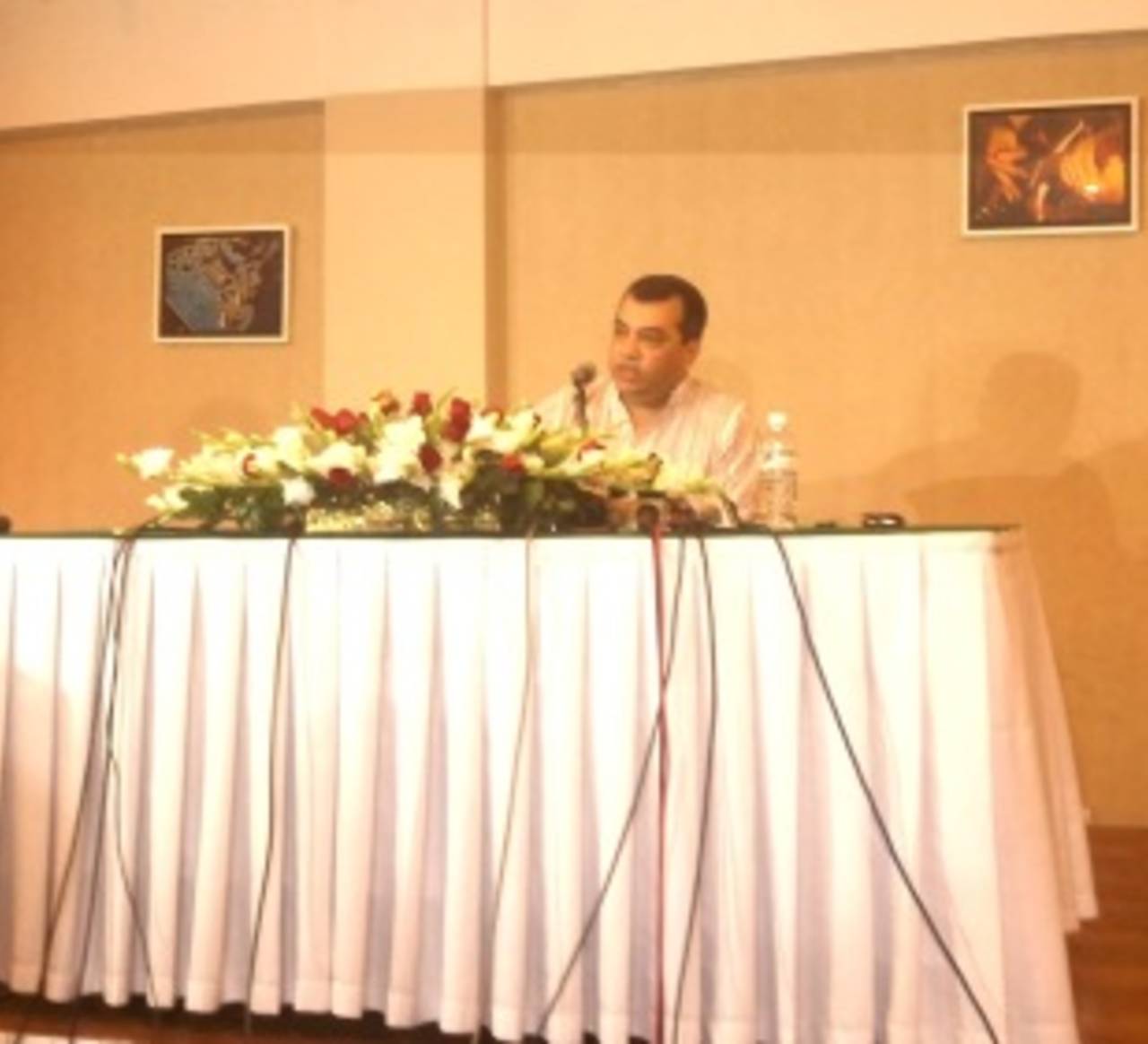Former Bangladesh Cricket Board president Saber Hossain Chowdhury has termed the changes made to the board's constitution "undemocratic and unethical" and has questioned the procedures followed by the board for making the amendments.
One of the main issues under the latest amendments made by the National Sports Council, the regulatory body for all sports federations in Bangladesh, is that the BCB president will be elected by the directors instead of the councilors (members of various clubs, districts, divisions, certain institutions and former players who hold voting rights in BCB elections). The change is a complete U-turn from the March amendment in which the BCB had given voting rights to the councilors after an ICC directive had asked for lesser government interference.
Secondly, the NSC increased the number of councilorships from the top six Dhaka Premier Division Cricket League clubs from one to two to justify the amount of money spent by the clubs during the league. This would make the BCB more Dhaka-centric rather than decentralised as it would give even more power to the clubs from the capital.
The third major change was at the district and division level where anyone, even from outside the district or divisional sports association's executive committee, can now become a councilor. Previously, a district councilor needed a minimum of three years experience in the executive body of his/her district.
On December 13, the Dhaka High Court gave a stay order of three months on the amended BCB constitution, which means the board has to be run under the 2008 charter.
Chowdhury was a pivotal figure in the country's cricket between 1996 and 2001 when Bangladesh won the ICC Trophy, were given ODI and Test status and held a global event and his criticism is a sign of major unease about the conflict-ridden BCB that is now run by an
adhoc committee instead of an elected body.
"It is a matter of concern to see such divisions in Bangladesh cricket," Chowdhury said. "I don't want to pick any of these sides, be it districts, clubs or players. We should be speaking on behalf of cricket.
"First of all, it is not clear what recommendations were considered when these changes to constitution were made. Secondly, we also have to know what process was used. When a higher body makes such amendments, it cannot just be made for the sake of it. The amendment has to come through a reference point. What I'm trying to understand is whether these changes were sought by the BCB or the NSC.
"From what I know of the NSC Act, it contradicts to how the amendments were made. As far as I know, the BCB adhoc committee hasn't discussed these changes."
Over the past weekend, the club representatives and those from the districts as well as the players' body have all commented on the amended constitution in a series of press briefings in Dhaka. The BCB has remained quiet about the matter. Chowdhury criticised this silence and asked the BCB to take the lead in correcting the wrongs.
"The cricket board has to take a stance, say whether they support the changes that have been made to the constitution. It is important to know their position because the BCB is the governing body.
"Everyone who will be affected by these changes are speaking about it, whether that be criticism or appreciation. But the BCB is quiet," he said.
He also pointed out the lack of clarity when it comes to following a modus operandi of running the BCB. "Ever since we wrote up the model constitution in 1998, it has been like a pendulum where we are swinging from a board of directors to an executive committee system and back to the board of directors."
Chowdhury said that the BCB should not have governmental intervention because it's a strong enough body, especially through its wealth. "The changes are establishing political influence in cricket. If the government had helped the BCB financially, it would have had a say.
"But the BCB has more money in the bank than the NSC probably, so I don't see a reason for the government to have an influence. I am not a believer of making these changes because the ICC has said so. I want political influence out because it is the right thing to do."
Mohammad Isam is ESPNcricinfo's Bangladesh correspondent
